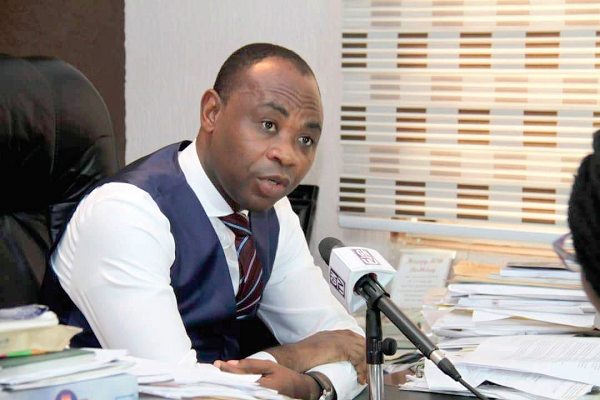
2 Organisations express disapproval over Ejisuman SHS students de-boardinisation
Two organisations, Child Rights International (CRI) and Africa Education watch — have expressed disapproval over the de-boardinisation of seven students of the Ejisuman SHS.
CRI has called on the authorities of the EjIsuman Senior High School to recall the seven students who have been de-boardinised for making some suggestive sexual comments in a video that has gone viral.It said the students should rather be put in isolation and given counselling services for proper reformation and rehabilitation.
Advertisement
“Expelling them from the boarding house does not solve the problem but rather aggravates, it since they now have full access to gadgets they can use to intensify their act,” the Executive Director of CRI, Mr Bright Appiah, said at a press conference in Accra on Wednesday, February 12, 2020.
Investigations
The CRI Executive Director indicated that preliminary investigations conducted by the organisation showed that the students in question did not make the videos with their own handsets.
“Information reaching us suggests that the girls had access to a mobile phone during visiting hours which they used to take the infamous video. The circulation of the video was also not done by them,” he stated.
He, therefore, urged the authorities of the Ejisuman SHS to investigate the matter properly, diagnose it and provide the needed solution.
Punitive
Mr Appiah said the CRI supported every punitive action taken by school authorities against students who indulged in acts of indiscipline.
However, he said those actions must not be tailored primarily to punish students caught to have indulged in acts of indiscipline like those seven females who were expelled from the boarding house.
“The CRI recommends that the GES, in partnership with social authorities, should focus on establishing a programme that would address the social needs of students in the senior high schools. The programmes and activities must be designed in a way that takes into consideration the places or neighbourhoods the children come from. Many children have lost the protection they should have from their parents and society and as a result have been on their own for a long time. The formalised system we have in our educational structure cannot address these social disorders,” he said.
Self-worth
Mr Appiah said most children, especially those in the SHS, were going through internal and physiological conflicts that seemed to have affected and damaged their self-worth and “so they believe that such ill behaviour would make them feel better and cause others to recognise and accept them in the way they want to be accepted”.
That, he said, was where the legal framework of child protection was crucial.
“When children, regardless of their background, are consciously made to be fully aware that they are protected and given the same privileges, they would begin to demonstrate good virtues. The protection of children in Ghana is ultimate, irrespective of the condition of the child. Therefore, in tackling these issues relating to children, protocols and conventions must be respected”.
The GES, Mr Appiah said, must open the discussion on the rules and regulations in order to conform to standards, adding that many countries were reviewing their codes and looking for better ways of correcting children in a way that would make them become better and not the other way round.
“Additionally, the GES must give standards for all heads of schools to meet as a target in the promotion of discipline. This is because the CRI has observed that most students in schools that are in categories ‘A’ and ‘B’ hardly show these tendencies. So far, most of the videos are coming mostly from category ‘C’ schools. What are other schools doing that the rest can’t do?” he asked.
Africa Education Watch
Africa Education Watch, a non-governmental organisation, has also called on the Ghana Education Service (GES) to take a second look at de-boardinisation as a form of punishment for boarding students.
A letter signed by the Executive Director of Africa Education Watch, Mr Kofi Asare, to the Director General of the GES said the service should adopt progressive sanctions that actually reformed students.
“Our attention has been drawn to a letter from the management of Ejisuman SHS indicating the expulsion of seven of its female students from the boarding school for social media misconduct.
“We note that in as much as it is important to sanction students when they breach the rules of conduct in school, as a way of instilling discipline and deterring others, the GES must not lose sight of the fact that most of these decisions may be arbitrary, archaic and contradictory,” it said.
The GES, it said, had a mandate to groom students to become literates, numerates and responsible adults, adding that “in fulfilling this mandate, secondary schools have the responsibility to teach, mentor and discipline students when they break school rules”.
“It is heart-warming that the GES now has a positive discipline policy. However, the use of de-boardinisation as a tool for positive discipline has far outlived its relevance. Since the 1990s, it has ended up making students even more truant than reforming them,” it said.
It said a positive discipline strategy must reform students rather than expose them to even higher levels of delinquency and truancy.



